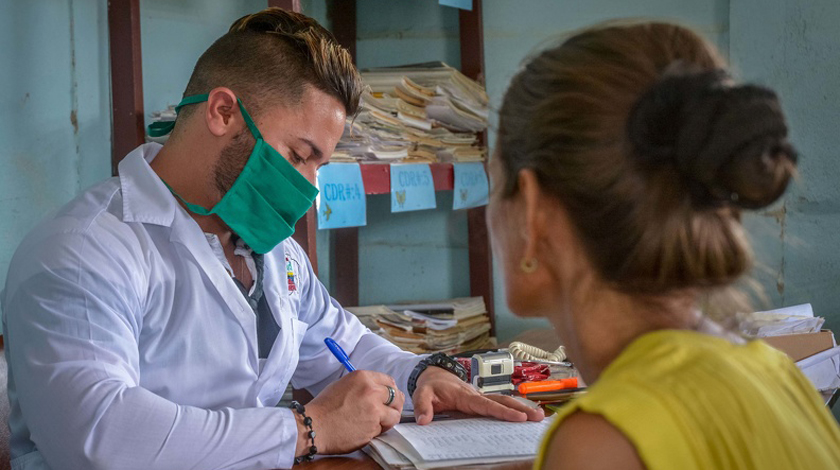
The potential of the Family Doctor and Nurse Program to transform rural and urban communities in Las Tunas was highlighted during an analysis on the subject at the Provincial Bureau of the Communist Party of Cuba.
Las Tunas, Cuba.- This movement, created by Commander in Chief Fidel Castro Ruz on January 4, 1984, is maintained as the essence of the National Health System and preserves its founding values aimed at increasing the quality of life of the population.
During the meeting, the main objective and subjective difficulties affecting Primary Health Care were presented, in addition to the actions developed in the 14 Health areas to guarantee the prevention of diseases and the follow-up of pregnant women, infants, and the elderly, fundamentally.
Incidentally, it was reported that the 556 clinics in the territory of Las Tunas are covered with basic equipment, even though several of these entities do not have water installations or are in a poor state of construction, especially in the carpentry of doors and windows.
Several of those present agreed that it is urgent to revitalize the Todos por Salud movement (All for Health) and involve the organizations and companies of the communities because it is in the collective interest to maintain the vitality of the facilities and, with this, to favor the permanence of the health personnel.
Dr. Henry López Jiménez, Deputy Director of Public Health, explained that 68 percent of family doctors are specialists in Comprehensive General Medicine and are responsible for looking after different problems such as teenage pregnancy, suicides, low birth weight, and chronic illnesses, among others.
He said that to achieve this, consultations and fieldwork are carried out using the clinical-epidemiological method and the use of Natural and Traditional Medicine, and elementary procedures in the face of the lack of material supplies. He added that work is being done to recover the sphygmomanometers, a very scarce resource.
For her part, Dr. Marianelsy Santana Montero, head of the Primary Health Care Department, said that the relationship with the community work groups should be strengthened and the schedule of the different processes should be more widely disseminated while highlighting the selection of 960 health brigadistas.
He also referred to the improvement of the medical rooms and the reorganization of the on-call plans. He also emphasized the special attention given to young professionals, with possibilities for improvement and participation in scientific and teaching activities.
In this regard, the member of the Central Committee and first secretary of the Party in the province, Manuel Pérez Gallego, underlined the importance of the Family Doctor and Nurse Program and the necessary influence it should have in the transformation of the problems in their environment.
He insisted that there should be a close relationship with mass organizations, cultural and sports promoters, the population, and community authorities to reduce environmental and social problems such as alcoholism and violence.





